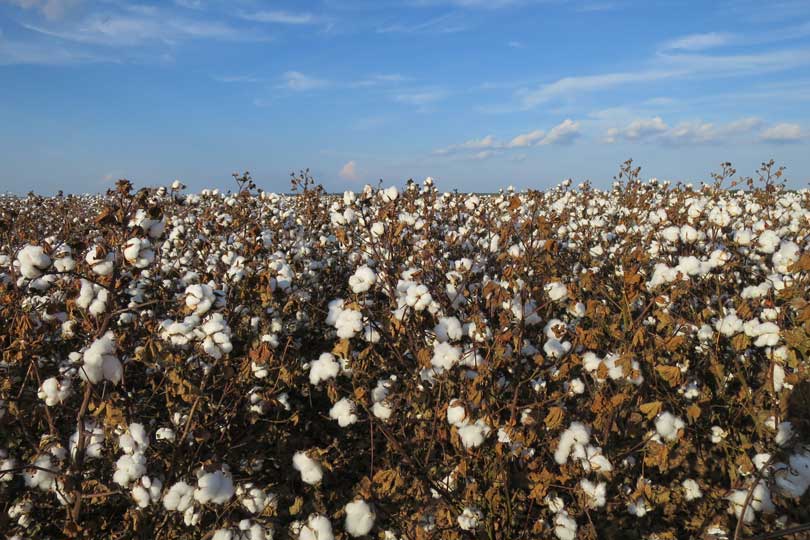By Justin Walker
Communications Specialist
Industry leaders have developed plans and partnerships in an effort to enhance and promote the sustainability of cotton.
A new initiative, the U.S. Cotton Trust Protocol, is set to begin as a pilot program this summer. The protocol is intended to keep the industry on track with its 2025 sustainability goals.
The protocol will collect, measure and verify data on U.S. cotton practices and its impact on the environment.
The plan is meant to track individual grower’s progress in meeting industry goals and help assure the global textile supply chain that cotton grown in the U.S. is done so responsibly.
The 2025 sustainability goals for the U.S., which were announced last year, include a 13 percent increase in productivity; an 18 percent increase in irrigation efficiency; a 39 percent reduction in greenhouse gas emissions; a 15 percent reduction in energy expenditures; a 50 percent reduction in soil loss; and a 30 percent increase in soil carbon.
The comprehensive regulatory environment in the U.S., close connection of American farmers to their land, high adoption rates of precision agricultural techniques by U.S. cotton growers and nearly 40 years of environmental improvement show cotton farmers embrace sustainability.
In addition to the protocol, a new partnership was launched between the U.S. cottonseed brand PhytoGen and Cotton Inc.
PhytoGen joined forces with Cotton Inc.’s Blue Jeans Go Green denim recycling program to help organize denim collection drives in communities known for growing cotton.
The program was designed to recycle worn denim into insulation, which keeps textile waste out of landfills.
“The collaboration with PhytoGen illustrates the full circle of U.S. cotton sustainability,” Stacey Gorman, director of communications for The Cotton Board, said. “New seed technologies and the commitment of U.S. cotton growers continue to make sustainable production gains, while the Blue Jeans Go Green denim recycling program addresses end-of-product-life sustainability.”
PhytoGen will be at several events throughout the year to collect used denim items.
Cotton farmers recognize the limitless potential in the crop, and the Blue Jeans Go Green program offers growers a chance to connect and interact with their communities, Gorman said.
“The Blue Jeans Go Green program is a great way to connect with the cotton-growing community and give them a way to divert textile waste from landfills,” Gorman said.
Since the program was established in 2006, more than 2 million pieces of denim have been collected. During that time, more than 3.9 million square feet of insulation has been upcycled from worn denim.

